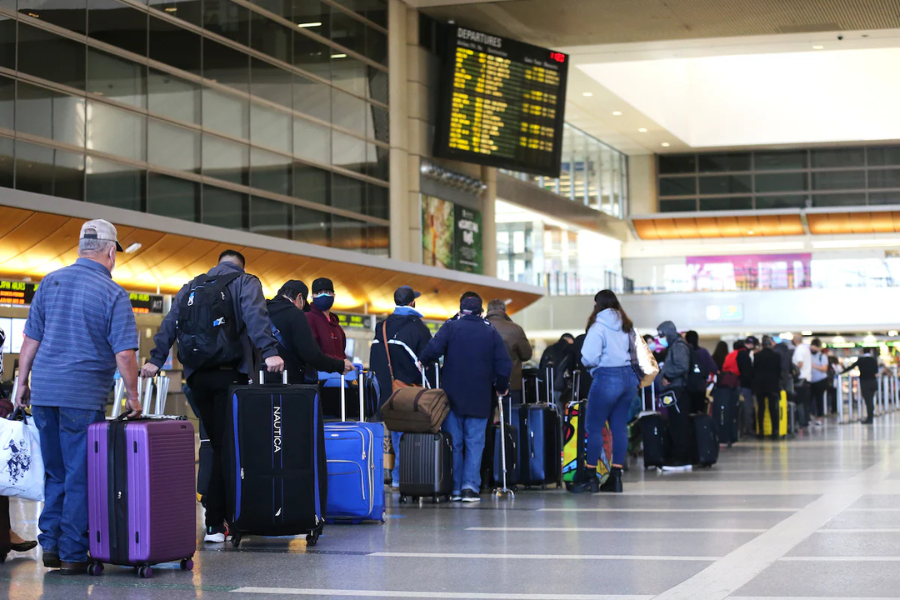As the peak summer holiday season approaches, travelers flying through Gatwick Airport are bracing for significant disruptions. Almost 1,000 workers, including baggage handlers and check-in staff, have announced plans to strike in a dispute over pay, raising concerns about delays, cancellations, and widespread chaos during one of the busiest travel periods of the year.
The Planned Strikes
The strike action, organized by the Unite union, is scheduled to take place over eight days in two separate periods. The first wave of strikes will begin on Friday, July 28, and continue until Tuesday, August 1. Following this, a second round of strikes is planned from Friday, August 4, to Tuesday, August 8. This timing is particularly disruptive as it coincides with the start of the school summer holidays, a period when airports across the UK and Europe are typically at their busiest.
Why Are Workers Striking?
At the heart of the dispute is a disagreement over pay. The Unite union, representing the striking workers, has argued that their members are not being adequately compensated for their work, especially in light of rising living costs. Unite has pointed out that the workers, who perform essential roles such as baggage handling and check-in, are vital to the smooth operation of the airport, yet their pay does not reflect the importance of their duties.
A spokesperson for Unite stated that significant disruption, delays, and cancellations are “inevitable” due to the strike action, emphasizing the crucial role these workers play in maintaining the airport’s operations. The union has called on Gatwick Airport and the companies employing the workers to return to the negotiating table to reach a fair settlement that addresses the workers’ demands.
Impact on Travelers
The strike action at Gatwick Airport is expected to cause widespread disruption to passengers. With nearly 1,000 staff members involved, the strike will likely result in slower processing times at check-in counters, longer wait times for baggage handling, and an overall reduction in the airport’s capacity to handle its usual volume of passengers.
Travelers using Gatwick during the strike periods are advised to prepare for delays and potential flight cancellations. The disruption is expected to have a ripple effect across other parts of the airport’s operations, including security checks and boarding procedures, leading to longer queues and potential missed connections.
Moreover, the timing of the strikes, during the peak summer holiday season, means that families, in particular, are likely to be affected. Many travelers who have planned their summer vacations months in advance may find their holiday plans disrupted or even canceled due to the industrial action. The possibility of significant delays could also lead to crowded airport terminals, adding to the stress and frustration of passengers.
The Broader Context: European Air Traffic Control Strikes
The Gatwick strikes come at a time when air travel across Europe is already facing significant challenges. Air traffic controllers, who play a critical role in managing the continent’s airspace, have also voted to take strike action over a similar dispute concerning pay, working hours, and staffing issues.
The potential for air traffic control strikes has raised the specter of further disruptions during the summer holiday season. Eurocontrol, the organization responsible for managing European airspace, has warned that up to 12,600 flights per day—roughly a third of all flights across the continent during this period—could be delayed or canceled if the strikes go ahead.
An industry source told The Times that in the event of a full-blown strike, “20 to 30% of flights would be at least delayed.” This level of disruption could have a significant impact on travelers, not only at Gatwick but across Europe, as airlines struggle to manage the reduced capacity and reroute flights around the affected areas.
EasyJet and Ryanair: Coping with the Fallout
The threat of strikes has already prompted some airlines to take preemptive action to minimize disruption to their operations. Budget airline easyJet, for example, has announced the cancellation of 1,700 flights during the peak summer season. The airline cited the potential impact of air traffic control strikes in Europe and the knock-on effects of the ongoing closure of airspace due to the Russia-Ukraine war as key reasons for the decision.
EasyJet has indicated that it will primarily consolidate services to and from Gatwick Airport, its busiest hub, in an effort to mitigate the risk of disruption. The airline’s decision underscores the vulnerability of its operations at Gatwick, which have been heavily impacted by strikes in France and other parts of Europe in recent months.
Ryanair, another major player in the European budget airline market, has also been affected by the industrial action. The airline has reported that the air traffic controllers’ strikes have caused disruption to 1.1 million passengers so far. In response, Ryanair has called on the European Commission to intervene and protect air travel services across the continent.
A spokesperson for Eurocontrol has acknowledged the ongoing disputes, stating that a trade union has announced “a period of six months during which industrial action could take place” in its network manager operations center. However, no specific dates for the industrial action have been confirmed. Eurocontrol has expressed its commitment to finding a resolution through “social dialogue” and is actively engaging with all social partners involved.
The Ripple Effect: Strikes at Other Airports
The industrial unrest at Gatwick and across Europe’s air traffic control sector is part of a broader wave of strikes affecting airports in the UK. Last month, security staff at Heathrow Airport narrowly avoided a similar situation when they called off planned strikes after voting in favor of a pay deal. The agreement, reached after extensive negotiations, included a 10% pay increase backdated to January 1, 2023, an additional 1.5% pay rise from October, and a guaranteed inflation-linked pay increase for 2024.
The deal at Heathrow also addressed other concerns raised by the workers, including improved maternity and paternity pay and the end of certain practices, such as switching staff between terminals without warning. The agreement demonstrated that through negotiation, a resolution could be reached, but it also highlighted the ongoing tensions between airport staff and management across the country.
Meanwhile, at Birmingham Airport, around 100 security officers and terminal technicians have announced plans to begin continuous strike action starting on July 18. The Unite union has warned that the strikes will severely impact the airport’s security and terminal maintenance, leading to flight delays and further disruption for travelers.
What’s Next?
As the strike dates at Gatwick Airport draw nearer, the focus will be on whether a resolution can be reached in time to prevent the planned industrial action. Negotiations between the Unite union, Gatwick Airport, and the companies employing the striking workers will be crucial in determining whether passengers can expect a smooth or disrupted start to their summer holidays.
For travelers, the advice is clear: prepare for the possibility of delays, stay informed about the status of your flights, and consider alternative travel plans if necessary. The coming weeks will be a critical test for Gatwick Airport and the wider aviation industry as they navigate one of the busiest and most challenging periods of the year.
Dive into the latest tech trends and news on forbeszine




